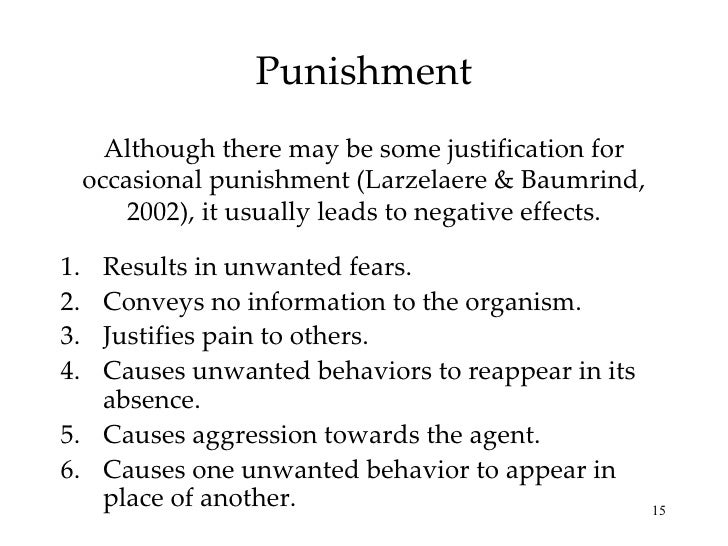Gambling Operant Conditioning
Many parents struggle with disciplining their children. Some have the hardest time just trying to toilet train them. The thought alone of teaching a child how to act or perform is an everyday struggle. Especially when it comes to dealing with behaviors. However, there are several techniques that derive from psychological experiments, which can help parents with disciplining. For instance, behaviorists B.F. Skinner came up with Operant Conditioning. Operant Conditioning is when behavior is strengthened or weakened by positive or negative reinforcements (Goldstein p. 10). As a parent I deal with my children’s bad behaviors, as well as their good behaviors. Operant Conditioning shows how behavior is influenced by three different types of responses or operant that affects behavior—positive, negative reinforcements, and punishment (McLeod 2007).
While chastising my children I never knew that I was practicing what Skinner referred to as Operant Conditioning. For example, when my daughter gets a bad report from school stating she was very disruptive during class, once she gets home the daily routine of hanging out with friends is taken away–she has to stay in the house without television, phone, computer or tablet. Say the next day she has a good report about her behavior in class, once she comes home I allow her to play outside, I return all electronics, and take her to McDonalds as a reward. This here is an example of how my child’s behavior was weakened from the punishment but when she no longer displayed this form of behavior she knew that she would be rewarded each time.
Another example, of how Operant Conditioning can be applied to my everyday life is when I had to toilet train my 2 year old. Every time she would go pee in the toilet I would give her a piece of candy. Each time she knew that if she had to go pee in the toilet she would be rewarded with a piece of candy. My 7 year old doesn’t like reading, I told her for each book she reads at night I would make her an ice cream cone for desert and each night she faithfully read a book to go with her homework. Both my kids continued to repeat the same behaviors because the positive reinforcement (reward) strengthened there behaviors to read and go to the toilet.
Operant Conditioning And Gambling
An example of a negative reinforcement of Operant Conditioning as applied to my everyday life as a parent would be when my daughter has tantrums each time she falls out and rolls around on the floor she has to get up and stand in the corner on one leg, for each time she decides that she is going to act up and have a tantrum she knows to go stand in the corner on one leg. From her having to perform this act she no longer displays the same behavior of the tantrums, the negative reinforcement of having to be in the corner on one leg strengthened her behavior by stopping the tantrums.
CBT deploys many of the same operant conditioning techniques as pure applied behavior analysis, but also introduces a talk-based component where the therapist leads the patient through the logic and mechanisms driving the addiction. Operant conditioning, sometimes referred to as instrumental conditioning, is a method of learning that employs rewards and punishments for behavior. Through operant conditioning, an association is made between a behavior and a consequence (whether negative or positive) for that behavior.
Operant Conditioning Gambling Example
Operant conditioning, sometimes referred to as instrumental conditioning, is a method of learning that occurs through rewards and punishments for behavior. Through operant conditioning, an individual makes an association between a particular behavior and a consequence (Skinner, 1938). Skinner uses gambling as an example of the power and effectiveness of conditioning behavior based on a variable ratio reinforcement schedule. In fact, Skinner was so confident in his knowledge of gambling addiction that he even claimed he could turn a pigeon into a pathological gambler (“Skinner’s Utopia,” 1971). According to the principles of operant conditioning, rewarded behaviors will increase. Of particular concern is that most addictive substances and activities are immediately rewarding. Research has taught us that when we immediately reward a behavior people (and animals) learn it more quickly.
In conclusion, Operant Conditioning is a method that people use on a daily basis to help change to outcome of ones behaviors. Parents are key components for utilizing this method for trying to strengthen their child or children’s behavior or weaken there behaviors depending on the circumstances. But I can say as a parent I utilize Operant Conditioning in my parenting skills to discipline my children.
Goldstein, E. B. (2011, 2008). Cognitive Psychology Connecting Mind, Research, And Everyday Experience. Belmont, CA: Wadsworth Cengage Learning .

McLeod, S. (2007). Skinner-Operant Conditioning . Retrieved from Simply Psyhology: http://www.simplypsychology.org/operant-conditioning.html